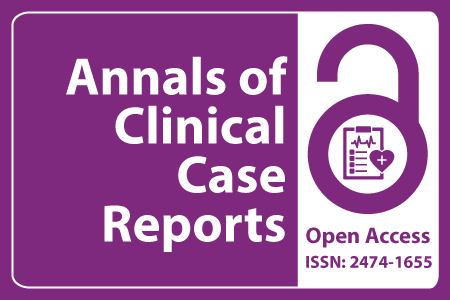
Journal Basic Info
- Impact Factor: 1.809**
- H-Index: 6
- ISSN: 2474-1655
- DOI: 10.25107/2474-1655
Major Scope
- Physical Medicine & Rehabilitation
- Renal Disease
- Biochemistry and Biostatistics
- Palliative Care
- Surgery Cases
- Infectious Disease
- Chemotherapy
- Diabetology
Abstract
Citation: Ann Clin Case Rep. 2021;6(1):2003.DOI: 10.25107/2474-1655.2003
A Case of Persistent Troponin Release: Is it always a Marker of Myocardial Injury?
Chiara Mainardi1, Giulia Brunello1, Mauro Boiago1, Anna Baritussio1, Renzo Marcolongo2, Nicoletta Gallo3, Monica Maria Mion3, Mario Plebani3 and Alida Linda Patrizia Caforio1*
1Department of Cardiac Thoracic Vascular Science and Public Health, Division of Cardiology, University-Hospital of Padova, Italy 2Department of Medicine, Hematology and Clinical Immunology, University-Hospital of Padova, Italy 3Department of Laboratory Medicine, University-Hospital of Padova, Italy
*Correspondance to: Alida Linda Patrizia Caforio
PDF Full Text Case Report | Open Access
Abstract:
Background: Syncope is a Transient Loss of Consciousness (TLOC) due to cerebral hypoperfusion, it shares many clinical features with many disorders and therefore it is encountered in many differential diagnoses. Our patient is a 33 years old man, former smoker, with a history of multiple episodes of TLOC and elevated high-sensitive Troponin I (hs-TnI) values. Case Report: The patient reached medical assessment after the first episode of TLOC, in 2013, when he was diagnosed with clinically suspected myocarditis due to persistently elevated hs-TnI and elevated C-Reactive Protein (CRP), and based on Cardiac Magnetic Resonance (CMR) findings. The second episode was in 2017 when clinical and additional examinations concluded for syncope. The third episode was in August 2020. All these episodes were associated with persistently elevated plasma hs-TnI concentrations. Conclusion: in this case neuromediated syncope was responsible for the recurrent TLOCs, while persistently elevated hs-TnI levels were associated with macro-troponin complexes formation, with no evidence of pathological implication.
Keywords:
Macro-troponin complexes; Neuro-mediated syncope; Heterophile antibodies
Cite the Article:
Mainardi C, Brunello G, Boiago M, Baritussio A, Marcolongo R, Gallo N, et al. A Case of Persistent Troponin Release: Is it always a Marker of Myocardial Injury?. Ann Clin Case Rep. 2021; 6: 2003..













